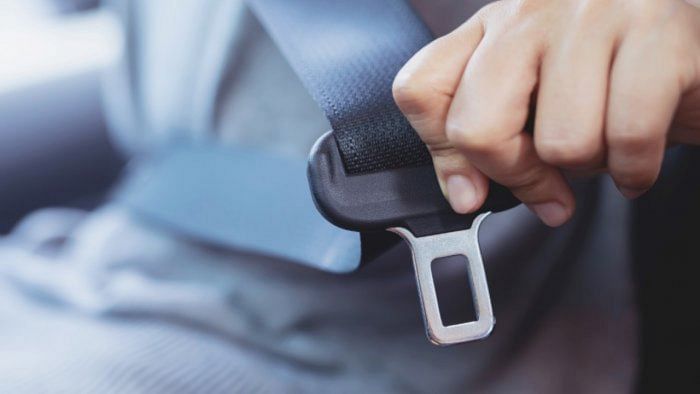
Seat-belt violations in 2022 were at their lowest in five years, an oddity in a year that saw a steep rise in overall traffic violations.
The past year saw a mere 1,22,929 cases being registered against car drivers for not wearing seat belts. This was a 60 per cent fall from 2020 when the violations hit a record 3,08,145.
A combination of factors — traffic cops doing fewer physical checks, the increase in the fine from Rs 500 to Rs 1,000, better public awareness and seat belt alarms in new cars — have been cited for the fall in numbers.
M A Saleem, special commissioner of police, Traffic, said: "There was greater enforcement last year. The alarm also played a role."
M N Anucheth, joint commissioner of police (Traffic), listed the increase in the fine, decrease in physical checks and better commuter behaviour as likely reasons. "Commuter behaviour has changed over time," he added.
In 2020, seat-belt violations stood at 1,56,592, a 96.7 per cent increase from 2019. Saleem said that was because though fewer policemen were posted on streets during the pandemic, traffic cops vigorously looked for mask and seat-belt violations.
He noted that most such violations were recorded on the outskirts of Bengaluru, particularly along Kanakapura Road, Bannerghatta Road, Magadi Road, Mysuru Road and Tumakuru road. This could be because of drivers’ lack of awareness and fewer traffic policemen posted in those areas, as opposed to violations spotted in core areas, where there are many cameras in key areas, leading to fewer violations, he said.
About 61.4 per cent of seat-belt violations recorded over five years were through physical checks before the Intelligent Traffic Management System (ITMS) was implemented, Saleem said.
He predicted the contactless detection would increase with time, adding that, of the violations recorded last year, over 32,500 cases were via contactless means, a significant increase compared to the 180 cases in 2021. In his opinion, the ITMS will ensure that "about 90 to 95 per cent cases detected this year will be via contactless means", which will act as a deterrent and eventually help in bringing down violations.
According to Kuldeep Kumar Jain, deputy commissioner of police (Traffic, West), the focus is on increasing contactless detection because though stopping visible violations can improve traffic discipline, it can also cause traffic jams, thus negatively impacting traffic police’s public image.
"Contactless recording provides authenticity of violations, but it takes time. No immediate impact is felt by the public,” he said. Mobile numbers are also not being updated at the RTO, he added.